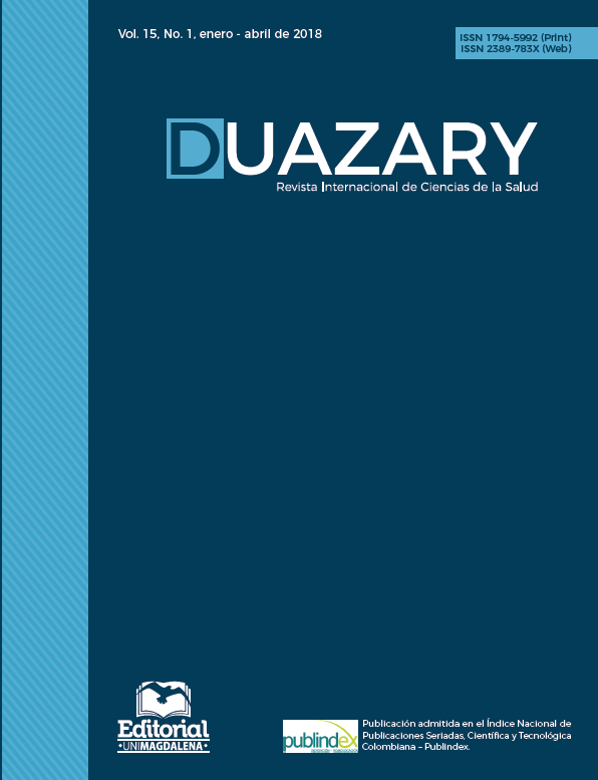Abstract
The object of this study was the construction and pilot study of an instrument for evaluating factors associated to individuals’ willingness towards organ donation. The Questionnaire about Knowledge, Attitudes and Beliefs consists of 22 items Likert type of self administration. It was answered by 244 adults, guardians of 10 schools from Concepcion, Chile, who belonged to the middle and lower socioeconomic levels. An Exploratory Factor Analysis was done under the method of Maximum Likelihood Estimation and Varimax rotation, which derived in five factors: a) reliance on the process of donation and transplantation, b) communication about organ donation within the family, c) ideological beliefs on organ donation, d) knowledge about organ donation and transplantation, and e) autonomy on the choice of donation. The reliance was measured through the Alfa of Cronbach and the relationship among the factors, through r of Pearson. It was established that the instrument is pertinent and reliable and a new application is proposed, to be administered on a bigger sample that includes individuals from the higher socioeconomic levels.References
Chile. Ministerio de Salud. Reglamento para la aplicación de la Ley N° 19.451 que establece normas sobre trasplantes y donación de órganos. Santiago (Jun. 17 2013).
Morgan S. The power of talk: African Americans’ communication with family members about organ donation and its impact on the willingness to donate organs. J. Soc. Pers. Relat. 2004; 21(1): 112-124.
Holman A, Karner-Hutuleac A, Ioan B. Factors of the willingness to consent to the donation of a deceased family member’s organs among the Romanian urban population. Transplant proc. 2013; 45(9): 3178-3182.
Gross T, Martinoli S, Spagnoli G, Badia F, Malacrida R. Attitudes and behavior of young European adults towards the donation of organs – a call for better information. Am. J. Transplant. 2001; 1(1): 74-81.
Ríos A, López-Navas A, Ayala-García M, Sebastián M, Abdo-Cruza A, Alán-Castro J, et al. Actitud hacia la donación de órganos del personal no sanitario de hospitales de España, México, Cuba y Costa Rica. Revista Nefrología. 2013; 33(5): 699-708.
Doggenweiller I, Guic E. Determinantes psicosociales de la intención de donación de donación de órganos en una muestra chilena. Rev. Med. Chile. 2014; 142(1): 27-33.
Rojas-Delgado P, Gutiérrez-Montaña M, Rojas-Rivera J, Saavedra-Ávila L, Ñancupil-Reyes W. Una mirada a la nueva ley de donación de órganos en Chile: la polémica prioridad para los donantes. Rev Fac. Med. 2014; 62(3): 477-480.
Hill E. Posthumous organ donation attitudes, intentions to donate, and organ donor status: examining the role of the big five personality dimensions and altruism. Pers. Indiv. Dif. 2015; 88: 182-186.
Navarro G. Moralidad y Responsabilidad Social: bases para su desarrollo y educación. Primera edición. Concepción: Editorial Universidad de Concepción; 2012.
Navarro G. Construcción de conocimiento en educación superior. Educación de competencias genéricas en la Universidad de Concepción. Primera edición. Concepción: Editorial Universidad de Concepción; 2015.
Kuddus R, Mehrizy R, Minale A, El-Saldi M, El Ezzi A. Motivation for organ donarion among college students in the United States. Transplant. proc. 2014; 46(6): 2014-2049.
Siminoff organs for transplantation. JAMA. 2001; 286(1): 71-77.
Murray L, Miller A, Dayoub C, Wakefield C, Homewood J. Communication and consent: discussion and organ donation decisions for self and family. Transplant proc. 2013; 45(1): 10-12.
Padilla-Cuadra J, Mora-Chacón P, Monge-Fallas A, Rodríguez-Barquero R. Actitudes y conocimientos sobre la donación de órganos, trasplante y muerte cerebral en estudiantes de ciencias de la salud. Acta médica costarricense. 2015; 57(4): 179-183.
Bustamante M, Villarreal P. Los medios de comunicación en el proceso de donación de órganos en Chile. Panorama socioeconómico. 2009; 27(38): 60-67.
Pérez M, Domínguez L, Gordon N, Hewlett J, Arnold R. Factors influencing families’ consent for donation of solid
J, Murillo F, Núñez A. Factores sociales y psicológicos que influyen en la donación de órganos. Psicothema. 1993; 5(2): 241-253.
Ríos A, López-Navas A, Iniesta A, Mikla M, Martínez-Alarcón L, Ramis P, et al. Involvement of religious factor son the attitude toward organs donation among the ecuadorian population resident in Spain. Transplant proc. 2015; 47(9): 2600-2602.
Rando B, Blanca M, de Frutos M. La toma de decisión sobre donación de órganos en la población andaluza. Psicothema. 2002; 14(2): 300-309.
Fernández-Rioja F, Zapata-Zapata C, Díaz-Vélez C, Taypicahuana-Juárez J. Validación de instrumento para medir la actitud hacia la donación de órganos en familiares de pacientes hospitalizados. Rev. cuerpo méd. HNAAA 2014; 7(1): 24-28.
Beavers A, Lounsbury J, Richards J, Huck S, Skolits G, Esquivel S. Practical considerations for using exploratory factor analysis in educational research. PARE. 2013; 18(6): 1-13.
Cronbach, L. Essentials of psychological testing. New York: Harper & Row; 1998.

